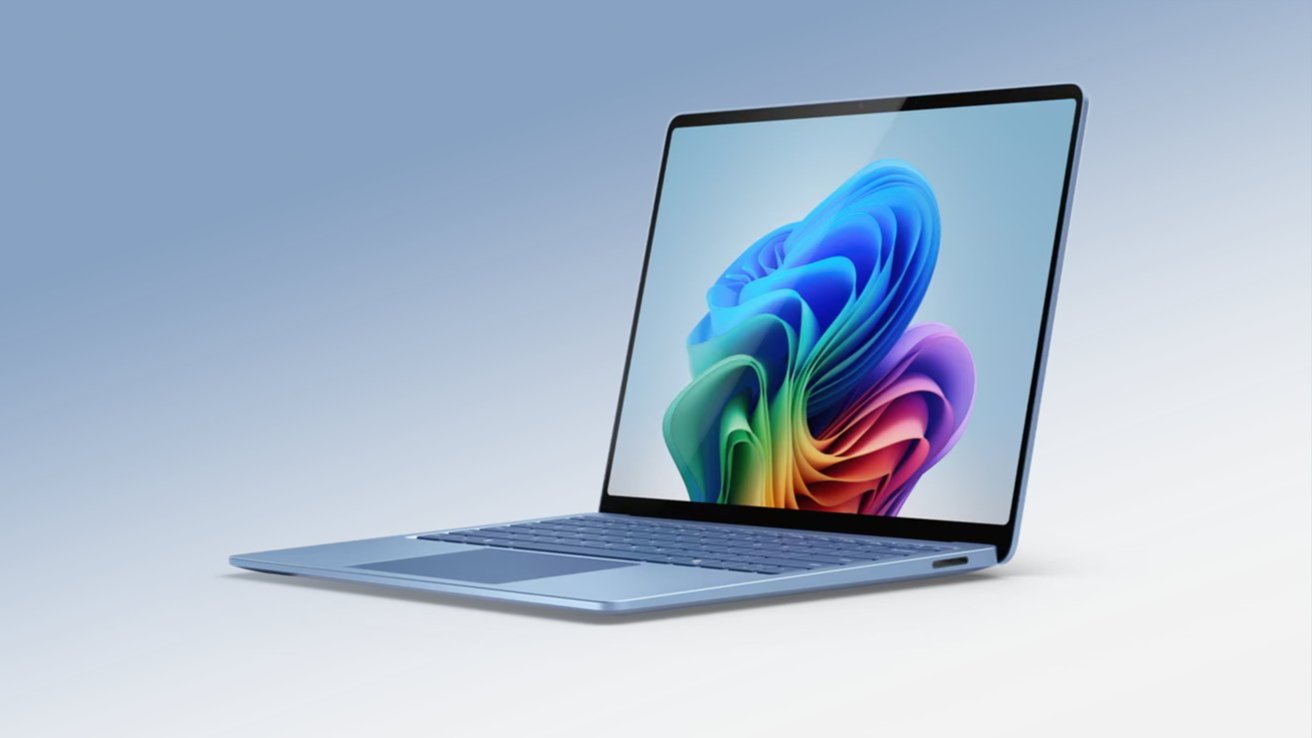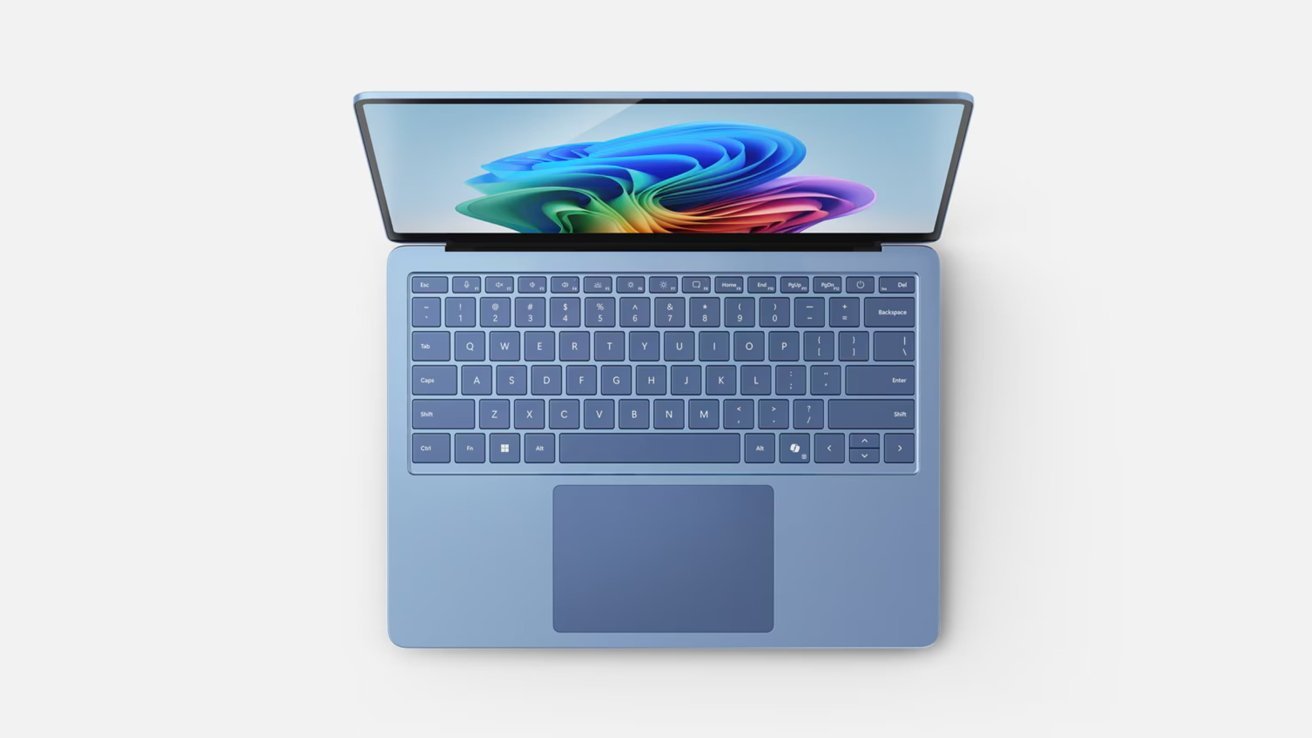Microsoft's push into AI-centric notebooks isn't great for gamers, as they can't play most of their games on the ARM-based chips inside the latest Copilot+ PCs. This is a problem that will be beneficial to Apple Silicon gaming.
In May, Microsoft launched a collection of Windows PCs it dubbed "Copilot+ PC." While largely an update to Microsoft's popular Surface line, it also represented a big shift in strategy to lean more on artificial intelligence and generative AI.
The change resulted in Microsoft entering the same sort of territory that Apple has occupied for a few years now, and that Microsoft had previously dabbled with. Rather than making a few models running on ARM-based chips and some on Intel variants, Microsoft instead decided to go fully ARM for 2024.
While the change brings with it many of the benefits that Apple enjoyed with Apple Silicon. However, it also brought with it the problem of architecture changes, which has affected gaming on its hardware platform.
Lost in translation
A report by the Wall Street Journal obviously notes that Microsoft's switch over to Qualcomm-ARM chips has been less than stellar for gamers. And, this is all despite Microsoft using a similar translation layer that Apple does with Rosetta 2.
PC games have historically been made for the Intel x86 chip architecture, and has done so for decades. With the adoption of ARM for the architecture, games produced for Intel chips therefore have to be remade to work on ARM in many cases.
The alternative is to use a translation layer that allows software made for x86 chips to communicate and work properly with ARM counterparts.
Apple actually did this with its own transition over to Apple Silicon, with its introduction of Rosetta 2. Originally the name for a translation layer to run PowerPC-based apps on Intel Macs, Rosetta 2 did the same about 15 years later, but this time, for Intel software to run on Apple Silicon.
Translation layers aren't entirely perfect. Microsoft's version is clearly far more problematic than Apple's.
An app may get a small performance hit when going through such a layer, since the layer must translate instructions from x86-readable code to ARM-compliant lines.
However, highly complex and resource-hungry games can encounter more issues using the layer than other software. With more elements in action than a typical app, there's more work for the translation layer to perform, increasing the chance of issues coming to light.
This has resulted in a vast swathe of PC games that won't run well or at all on the new Copilot+ PCs. Research firm Omdia determined that only half of 1,300 independently-tested PC games ran as well on ARM as they did on Intel chips.
The percentages are worse on AAA games, or games with strict digital rights management.
Microsoft knows
In the months since launch, the anger of customers is clear to Microsoft. The company confirmed that some games won't work due to graphics demands, but that it was still "committed to making a quality gaming experience."
As for what players could do now, Microsoft offered those who "want a high-performance gaming experience may choose an alternate PC optimized for gaming."
So, Intel PCs.
Qualcomm also offered a similar comment. It's chips used in Microsoft's hardware are "not currently considered a gaming platform," but it was still working the problem.
However, one problem it cannot easily defeat is one involving anti-cheating software. Built into many popular games, the software is often unable to actually run properly, and can cause players to be kicked out of multiplayer games because of the translation layer.
Due to the structure of Qualcomm's ARM chips, some experts say that it cannot be easily fixed by a software patch. Instead, players may end up having to wait for Intel's new chips to be used in Copilot+ PCs if they want to game without the issues.
An Apple advantage
While not having a major gaming pedigree outside of iPhone gaming, the situation is actually playing into Apple's hands more than ever before.
Mac games evangelism has been on-again off-again for 30 years, despite total dominance on mobile. Since bringing out Apple Silicon, it has been ramping up its efforts to attract gamers to the Mac by bringing aboard some well-known game franchises to the platform.
This included entries such as Hideo Kojima's Death Stranding: Director's Cut. By 2024's WWDC, this expanded into a larger collection of arriving-soon titles, including remakes of Resident Evil, Dead Island 2, and Remedy's Control.
Apple's wooing goes beyond just gamers. It also crucially includes those who make the games.
While Apple knew that Rosetta 2 would work, it's far from the optimal way to play games on a Mac. So, during WWDC 2023, it introduced the Apple Game Porting Toolkit.
It was an SDK that provided a customized translation layer for playing Windows-based DirectX games on a Mac.
A second-generation version of the tool arrived one year later, enhancing Xcode support and introducing shader debugging tools, as well as making it easier to bring games to iPhone and iPad.
The key here is that the Game Porting Toolkit wasn't a way to package PC games in a simple Mac-compatible wrapper. Instead, it was meant to help developers see how the game runs with minimal assistance, and whether to proceed with a proper native Apple Silicon port.
That said, the Game Porting Toolkit has been used by some Mac users to actually play PC games on their hardware. Since its introduction, gamers have created guidesto using the SDK, and even simplified the process with an installer.
There's even a separate installer app and wrapper called Whisky, which creates "bottles" of Windows games that interface directly with Game Porting Toolkit.
A tide that lifts all boats
Despite this being a problem for Microsoft now, the real benefit to Apple could be in the future. Because of that need to be on modern Windows hardware, developers could make more games that work natively on ARM-based chips.
Since Apple Silicon is ARM-based, it would be far less of a costly stretch for a developer to port a game for Windows ARM to Apple Silicon, since most of the work will have been completed. Ports do cost money to produce, but if it's less work to accomplish, this would make it cheaper to undertake.
If Apple can finesse the situation right, this could lead to more developers building for Windows ARM desktops also adding a Mac port to the task list.
 Mike Wuerthele and Malcolm Owen
Mike Wuerthele and Malcolm Owen








-m.jpg)






 Andrew Orr
Andrew Orr
 Wesley Hilliard
Wesley Hilliard

 Oliver Haslam
Oliver Haslam
 Christine McKee
Christine McKee
 Amber Neely
Amber Neely








22 Comments
Spawn of Windows RT.
For a better Windows AI laptop use a AMD chip since they last longer and have better gaming capabilities than Intel. With that being said when Intel and AMD release their own ARM chips that’s when the gaming community will jump ship. Especially if laptops sporting those chips can also use a dGPU.
Microsoft has been failing in the last six months recalling Recall AI, the new Surface laptops failing partnership with Qualcomm, their inability to port Windows to Arm SOC’S natively on the third attempt, the CloudStrike third parties in the Kernal fiasco, only they can get away with not being labeled Doomed…… And the same pretty much applies to Intel all due to actual market monopoly inertia.
Qualcomm is in a pickle because they have a senior partner doesn’t feel a sense of urgency to port Windows over natively until they do Qualcomm has nowhere to go. Apple on the other hand makes great hardware combined with a more than good enough OS software across multiple devices, development tools and certainly has the largest share of the affluent buyers/owners within their ecosystem in the computer world yet they have trouble getting support even today and that also includes the cad world, and that’s also despite being on the eve of offering what may be the best laptop made in the world, with the M4 SOC chip which will be a absolute beast. A laptop (192-256 gigs of memory?) made for the modern AI software engineer on the go.
I recall reading that Apple Silicon has some special on-chip extensions that are specifically targeted at running the Rosetta 2 code more efficiently. This is the sort of advanced implementation that you can only create when you own the entire hardware and software stack.
I'm going to have to dig into that, seems like it might be an important competitive advantage.